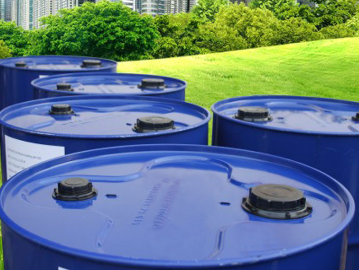Silicone rubber is an incredibly versatile material that finds application in a wide range of industrial settings. Its unique properties make it suitable for various applications where other materials may not be suitable or perform as well. In this article, we will explore the versatility of silicone rubber in industrial applications and highlight some of its key benefits.

One of the most significant advantages of silicone rubber is its excellent temperature resistance. It can withstand extreme temperature conditions, ranging from as low as -60 degrees Celsius to as high as 230 degrees Celsius. This makes silicone rubber ideal for applications that require material to function in both high and low-temperature environments. For example, silicone rubber is commonly used in automotive engines, where it is exposed to both extreme heat and cold.
Silicone rubber also exhibits excellent resistance to chemicals and solvents. It is highly resistant to oils, fuels, acids, and bases, making it suitable for use in environments where exposure to various chemicals is common. This property makes silicone rubber an ideal choice for gaskets, seals, and other components that come into contact with different substances.
Another notable characteristic of silicone rubber is its excellent electrical insulation properties. Silicone rubber has a high dielectric strength, making it an excellent insulator. It also has low electrical conductivity, which makes it suitable for use in applications that require electrical insulation, such as cable coatings, electrical connectors, and insulating gaskets.
Furthermore, silicone rubber offers exceptional UV and ozone resistance. It does not degrade or become brittle when exposed to sunlight or ozone, making it suitable for outdoor applications. Silicone rubber is commonly used in outdoor electrical wires, solar panels, and automotive components that are exposed to the elements.
Additionally, silicone rubber has excellent tear and abrasion resistance, making it highly durable in demanding industrial applications. It is resistant to wear and tear, making it suitable for use in seals, gaskets, and other components that require long-lasting performance.
Silicone rubber is also known for its excellent flexibility and elasticity. It can be easily molded into various shapes and sizes, allowing for the production of complex and intricate components. Its elasticity allows it to maintain its shape even after repeated deformation, making it suitable for use in applications that require constant movement, such as in hoses, tubing, and seals.
Moreover, silicone rubber has excellent weathering resistance, which means it can withstand exposure to atmospheric conditions over an extended period without degradation. This property makes silicone rubber ideal for applications in outdoor environments, where it is exposed to sunlight, rain, and temperature fluctuations.
In conclusion, silicone rubber is an incredibly versatile material that finds extensive use in industrial applications. Its unique properties, including excellent temperature resistance, chemical resistance, electrical insulation properties, UV resistance, tear and abrasion resistance, flexibility, and weathering resistance, make it an ideal choice for a wide range of applications. Whether it is used in automotive, electrical, aerospace, or other industries, silicone rubber provides performance and reliability in demanding environments.